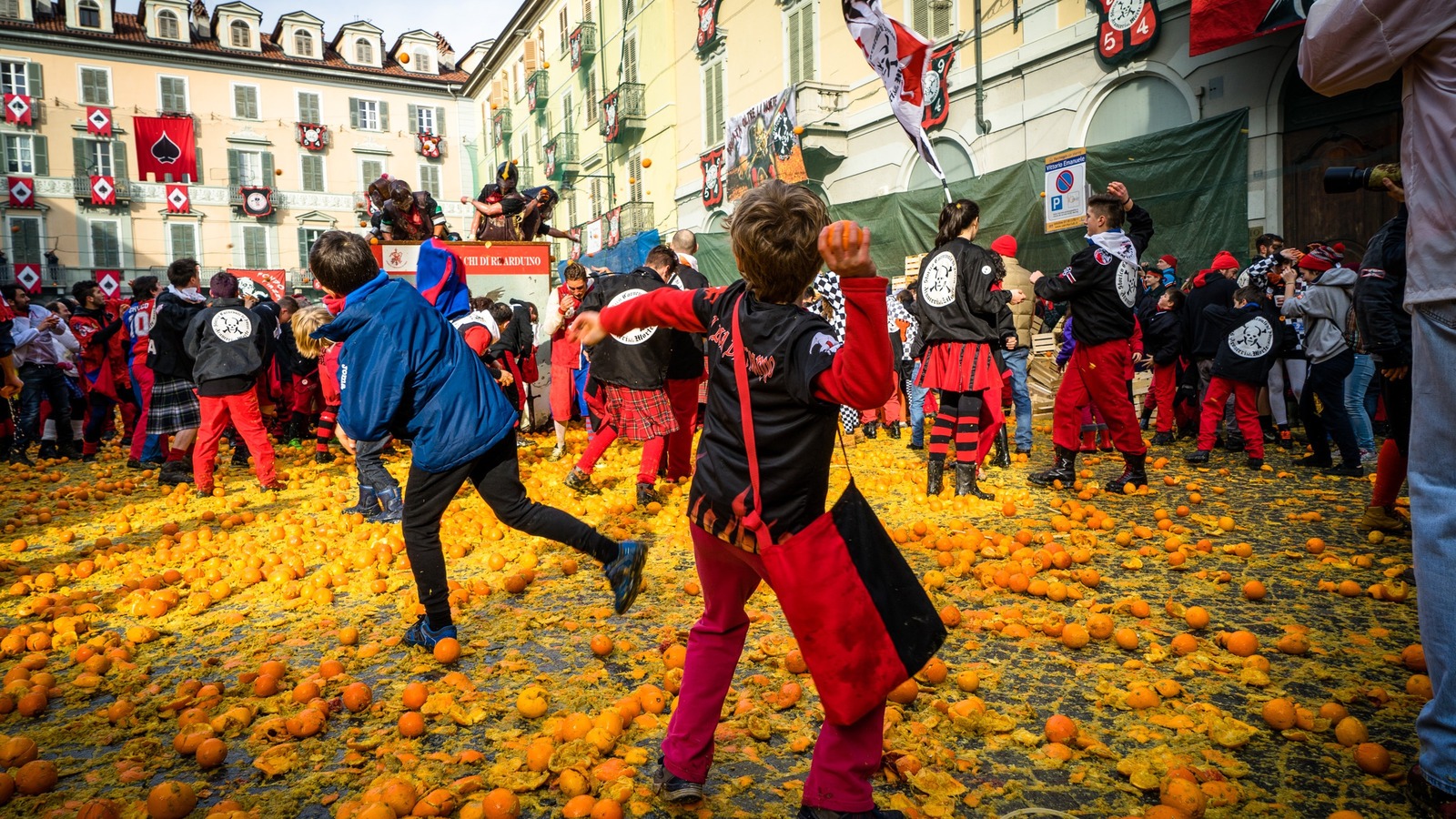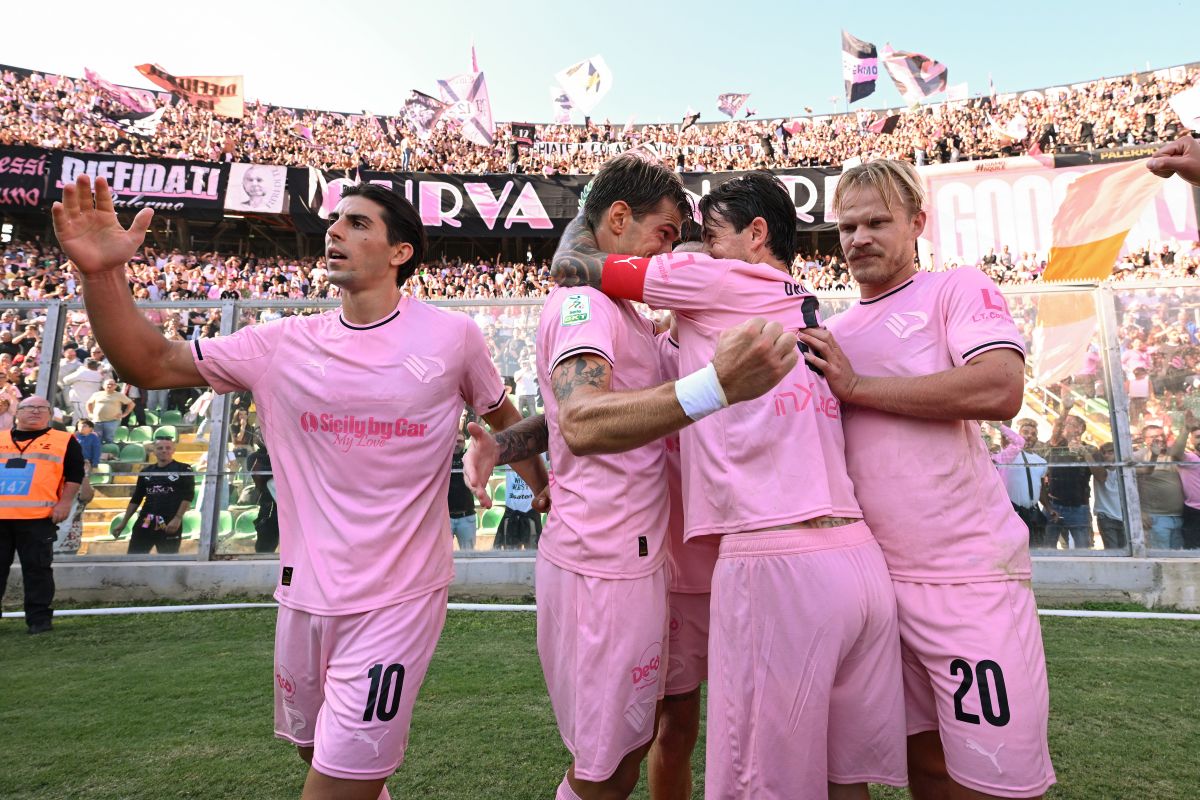
Alessandro Del Piero at 50: Seven Moments That Defined His Career
By Emmet Gates
When Juventus signed a young Alessandro Del Piero from Padova in the summer of 1993, few would’ve predicted the career that lay ahead of him.
Del Piero’s career spanned 23 years, from Padova in Serie B to Delhi in India via a 19-year association with The Old Lady that defined him. He retired from the game aged 39 and as one of the most-decorated players in Italian football history.
Yet for all the silverware, all the Scudetti, the Champions League in 1996 and the World Cup a decade later, it’s the moments that spring to mind when reflecting on Del Piero’s career.
As he turns 50, Destination Calcio takes a look back at some of his finest moments.
First Juventus start against Parma: March 1994
Del Piero had signed for Juventus the previous summer, and was handed his debut by Giovanni Trapattoni just three games into the season, coming off the bench against Foggia. A week later he notched up his first goal for Juventus, the last in a 4-0 rout against Reggiana.
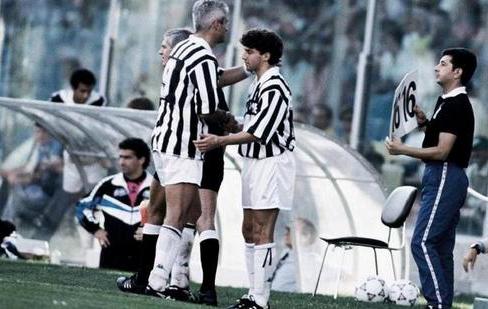
Trapattoni wouldn’t give Del Piero his full debut until March, when he was paired with Fabrizio Ravanelli. The end result was a hat-trick in a crushing 4-0 win against a Parma side that would finish fifth and reach the final of the Cup Winners’ Cup that season.
None of the goals were memorable in and of themselves, they were good, clean finishes, yet it demonstrated the immense talent Juve had on their hands.
The week that changed everything: December 1994
A million different factors go into the making of a superstar. One of them is grabbing the opportunity when it arrives. Del Piero did this inside a single week in December, and his life would never be the same.
The chance arose due to a free-kick scored by Roberto Baggio against Del Piero’s old side, Padova, at the end of November. Baggio damaged his knee while in the process of scoring the set piece and had to be withdrawn. The Divine Ponytail was now due to miss four months of the season, and this was Del Piero’s time to grab the brass ring.
A week later Juventus found themselves 2-0 down at home to Fiorentina before Gianluca Vialli pulled two goals back to seemingly salvage a draw. Del Piero had other ideas. In the dying seconds of the game, Alessandro Orlando’s hopeful long pass down the left-hand channel was met by the 20-year-old Del Piero, who hit a first-time volley (in truth, he shinned it) that arrowed into the top corner of Francesco Toldo’s goal. It was Del Piero’s favourite goal of his career.

Seven days later, Del Piero scored two against Lazio in a pulsating 4-3 encounter in the rain-drenched capital. His second in particular, where he weaved in between Paolo Negro and Jose Chamot from the left-hand side before bending the ball into the far corner, would soon enter the football lexicon as ‘Zona Del Piero’.
Del Piero’s brilliance in that December week, in addition to his tactical flexibility, was enough to convince Juve manager Marcello Lippi that he could live without Baggio, and six months later Del Piero inherited the No10 shirt on a full-time basis, with the world’s best player sold to AC Milan.
Winning the Champions League: May 1996
After two years of being Baggio’s understudy, Del Piero graduated to leading man status in the 1995-96 season. Juve’s first Scudetto in nine years in the spring of 1995 meant entry into the Europe’s top competition for the first time since 1986.
Del Piero scored in his first five Champions League games, including stunners against Borussia Dortmund, Rangers and Steaua Bucharest, as the term ‘Zona Del Piero’ really took flight.
He was more quiet in the knockout rounds, but scored a vital free-kick in the quarter-final second-leg against Real Madrid in Turin that helped turn the tide for The Old Lady. Juventus went on to win the Champions League in Rome against mid-90s darlings Ajax on penalties. “Winning it [the Champions League] was the best feeling,” reflected Del Piero years later.
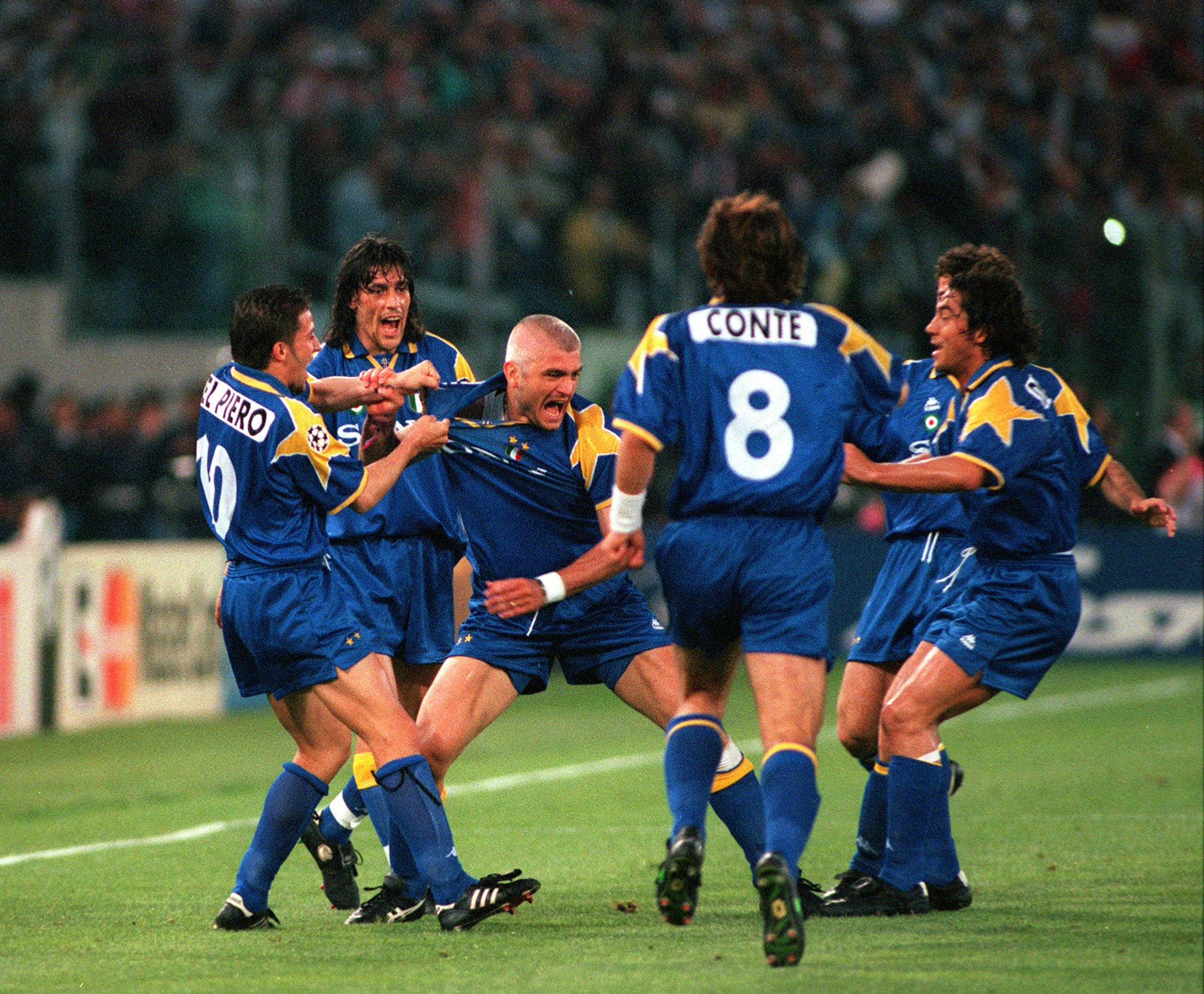
It was the club’s second, and to date last, Champions League success. With the first win barely acknowledged by Juventus due to the tragedy of Heysel, the 1996 title felt more like the club’s original triumph.
Del Piero’s form in the Champions League saw him finish fourth in the 1996 Ballon d’Or list. He’d never reach that high again.
Top of the world: April 1998
“Your move to Italy inspired me… I trained really hard,” Del Piero confessed to Ronaldo on an Instagram live chat amid the world stopping due to the global pandemic in early 2020. “I spoke to our coaches and said to them: ‘We’ve got work to do’.”
Ronaldo’s move to Inter in the summer of 1997 ignited something in Del Piero, and with the Brazilian now soon to be terrorising defenders in Serie A just as he’d done in the Eredivise and La Liga, Del Piero had to up his game.
And up it he did. Del Piero and Ronaldo went toe-to-toe in Serie A on a weekly basis. Ronaldo would score, and Del Piero would reply. Ronaldo would score a wonder goal in the Uefa Cup, Del Piero would respond with his own in the Champions League. Two supreme talents at the top of their game.
By the time April rolled around, Del Piero was in the form of his life. A very good Monaco side stood in Juve’s way of a third consecutive Champions League final, yet Del Piero wasn’t in the mood for letting up.
He scored four goals across the two legs, including a trademark free-kick, to secure Juve’s passage to yet another final. Del Piero was the first player to net three goals in a single semi-final game since the revamp in 1992, and there wouldn’t be another for 12 years. He finished as the competition’s top scorer with 10 goals, the first to break the double-digit barrier in the new format.
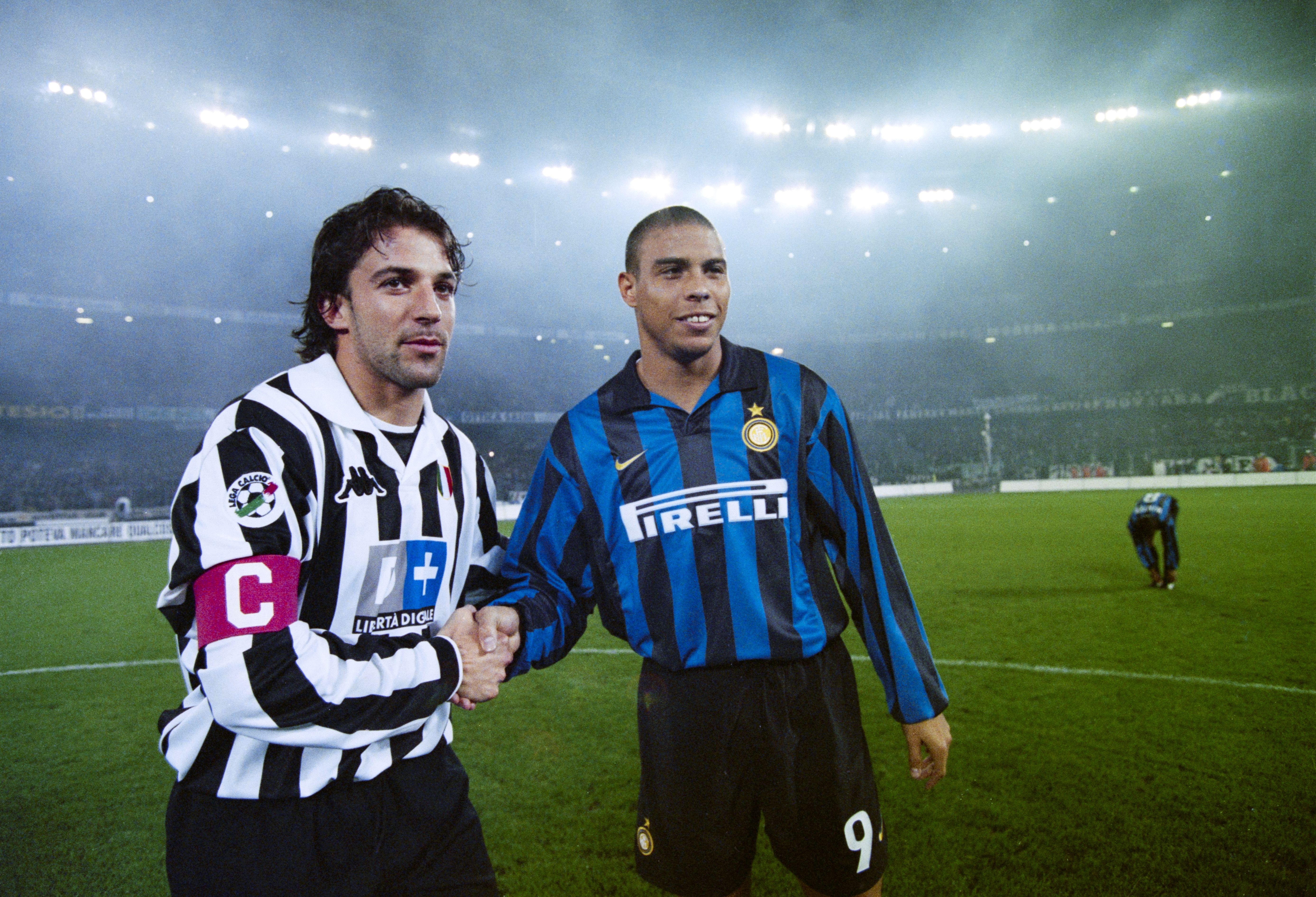
Del Piero scored the vital winner in the Scudetto showdown with Ronaldo’s Inter at the end of the month that all but secured another title for Juve. The game lives in infamy due to the Ronaldo-Mark Iuliano incident, but Del Piero’s goal in the game was exquisite, if overlooked. He finished the 1997-98 season with 32 goals in all competitions, a career best.
As Ronaldo starred in the Uefa Cup final in Paris, Del Piero floundered in the Champions League showpiece in Amsterdam, suffering a hamstring injury that would affect his performances at France ’98. His career-changing injury against Udinese in November of the following season signalled the end of Del Piero 1.0. The explosive pace that defined his early years was gone and upon his return in the summer of 1999 he became a more cerebral player.
April 1998 represented the very best of the original Del Piero, when he could win games on his own and had a legitimate claim to being the best player in the world, spurred on by the presence of Ronaldo.
World champion: July 2006
If Del Piero’s club career with Juventus was more triumph than not, the same couldn’t be said for his international career.
The criticism always levelled at Del Piero was that he never commanded a tournament in the way Baggio did at USA ’94, nor even left a tournament as one of the Azzurri’s best players like Francesco Totti at Euro 2000. Yet Del Piero was always there. He earned 91 caps and played in seven major competitions for Italy.
Del Piero received all of 45 minutes at Euro ’96. He was underwhelming at France ’98 and Euro 2000 — where he missed two massive chances in the final that would’ve sealed the victory long before David Trezeguet netted the golden goal — and was mediocre at the 2002 World Cup. Euro 2004 was much of the same and by the time the 2006 World Cup rolled around, he was in the squad not as a starter but an impact player off the bench.
And then came his finest moment in blue.
The semi-final with Germany in Dortmund has went down as one of the best clashes in the recent history of the tournament. Del Piero, now 31, came on with 16 minutes left of extra time.
Fabio Grosso had given Italy the lead with a minute remaining following a wonder pass from Andrea Pirlo. With German heart’s broken and head’s lost, the hosts tried to find an equaliser, leaving virtually every player in the Italy half following a corner.
Fabio Cannavaro strode out of defence like a Neapolitan colossus to win the ball from Lucas Podolski and give it to Totti, who fed Alberto Gilardino on the left-hand side in the final third.
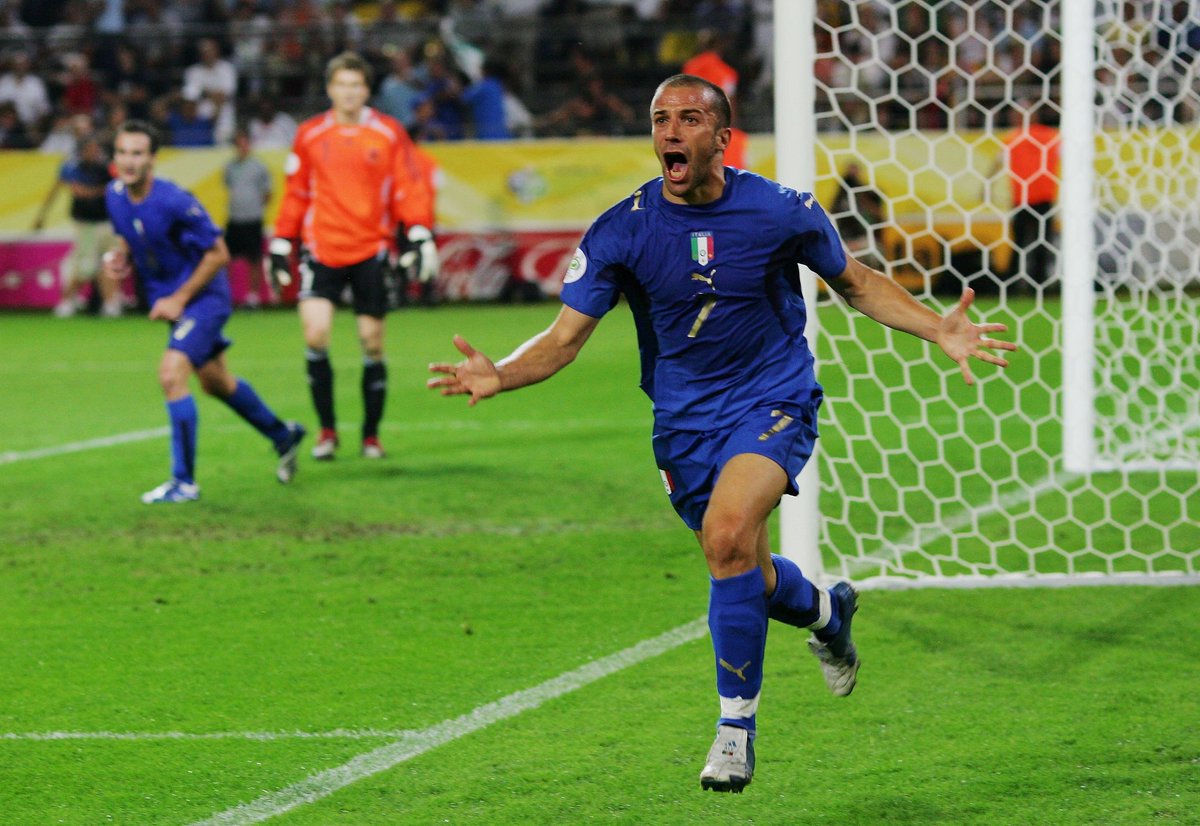
Gilardino waited, waited, and waited some more for the onrushing Del Piero, who made an 80-yard gallop in order to help the striker. Gilardino slid the most perfect of reverse passes into the feet of Del Piero, who opened up his body and bent the ball into Jens Lehman’s goal, putting the seal on an epic semi-final clash. His celebration was that of a man who knew he’d exorcised his demons of 1998 and 2000.
Five days later he became a world champion, scoring in the penalty shootout. With his club in free fall amid the Calciopoli scandal, Del Piero at least knew he’d fixed his checkered time in the blue of Italy.
A standing ovation: November 2008
Juventus struggled in the post-Calciopoli years. Forced relegation to Serie B in the summer of 2006 saw an instant return to Serie A a year later. Many players left the club that turbulent summer, and in the years after Juve’s ambition was scaled down, the club signing a string of mediocre talent.
Del Piero was, along with Gigi Buffon, the only constants at a club in a major state of flux. He had offers to jump ship, but the answer was always the same. “A gentleman never leaves his lady,” was his response when asked once why he never left Juve.
In 2007-08 Del Piero won the Capocannoniere title for the one and only time in his career, finishing one goal ahead of Trezeguet as Juve finished third in Serie A. Under Claudio Ranieri, Juve were set to take part in the Champions League for the first time in three seasons and were drawn in a group containing Real Madrid and Zenit St. Petersburg.
Del Piero was now 33 but rolled back the years in the group stage. He scored a swerving free-kick against Zenit in Turin, his first Champions League goal since December 2005, then produced a sumptuous strike against Madrid in a 2-1 win at the Stadio Olimpico di Torino.
Two weeks after the Madrid win, Juve travelled to the Santiago Bernabeu for the return fixture, and Del Piero left one of his best European performances till last.
In what was a very ordinary Juve line up, Del Piero was utilised behind Amauri in a 4-4-1-1 system, while the likes of Momo Sissoko, Marco Marchionni and Pavel Nevded did the running, the quality was left to Del Piero.
The game was just 16 minutes old when Del Piero caught hold of the ball inside the Madrid third, ran at former teammate Fabio Cannavaro before using him as a shield, bending the ball around him with his left-foot and into the corner of Iker Casillas’ goal.
50 minutes later, he added a second. Sissoko’s surging run was stopped by the trailing leg of Cannavaro some 25 yards from goal, but this was Del Piero territory.
The Madrid wall was haphazardly arranged; Casillas clearly believed Del Piero would bend the ball into his left-hand corner. Instead, he cut across and bent the ball into his closest side, giving the Spanish goalkeeper no chance, the wall misplaced as the ball nestled in the bottom corner.
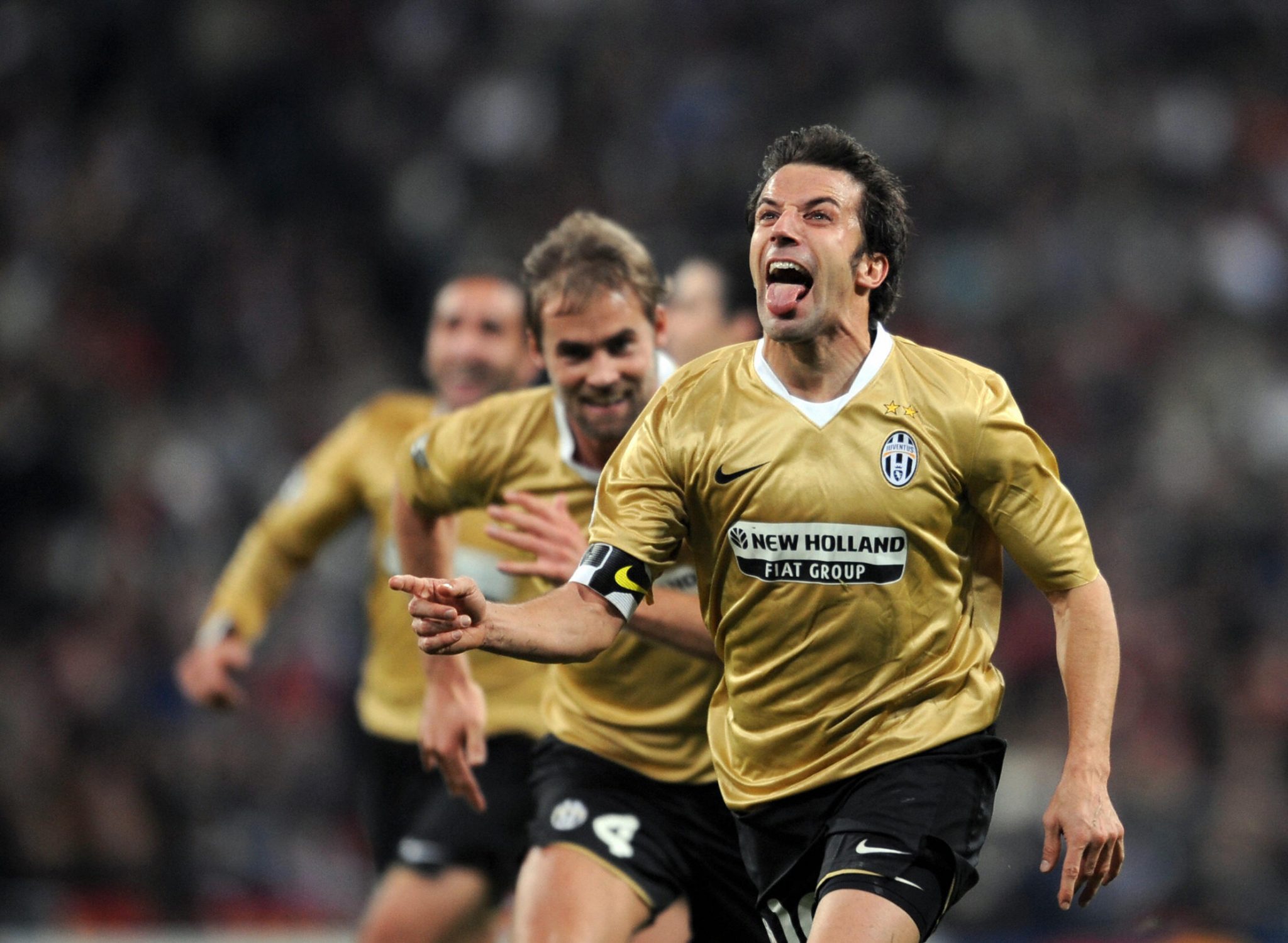
After nearly completing his hat-trick with a shot that trickled past Casillas’ post, Del Piero was replaced by Paolo De Ceglie and received a standing ovation from fans inside the Bernabeu. Such ovations are rare from Madrid fans, with only a small group of Diego Maradona, Ronaldinho and Andres Iniesta to be given that honour over the years. “I was so focused on the game, and as I was coming off I said to myself ‘are these fans clapping for me’? It was an amazing moment,” Del Piero recalled years later. “Because the Bernabeu is like a temple, it was like winning a trophy for me.”
Coincidentally, Maradona was in the stands and later remarked: “Del Piero never gets old!”
Unfortunately for Del Piero, he was. He often reserved his best European performances against Madrid, scoring five goals against them over the years. And it was somewhat fitting this was his last great night under the lights in Europe’s premier competition. He would play a handful more Champions League games, but by the time the club returned in 2012-13, he was playing in Australia’s A-League.
The last dance: May 2012
Del Piero must’ve wondered at times whether remaining loyal to Juve had been worth it. After 2009 the club sank into a dark hole. Many of the players who stayed with the club during the Serie B year had either retired (Nedved) or were about to leave (Mauro Camoranesi, Trezeguet), while the squad was littered with mediocrity.
Two seventh-place finishes in 2010 and 2011 meant Juve were a world away from competing for titles, until Antonio Conte arrived.
Conte, along with Andrea Pirlo, a reinvigorated Buffon and a new stadium propelled Juve to an unlikely Scudetto in 2011-12, seeing off a much better Milan side. Conte used his old teammate Del Piero sparingly. He only started four games, yet made vital contributions such as the free kick against Lazio and a game-clinching second goal against Inter.
By the final game of the season against Atalanta, it was clear that Del Piero’s 19-year association with Juve was up. Now 37, Del Piero didn’t fit into the club’s plans. He started and scored against La Dea, his 188th strike in Serie A, and left the field to a thunderous applause from Bianconeri fans, many of them visibly weeping as a man who’d come to define the club departed the stage.
He performed a lap around the pitch while the game continued, signing shirts and taking pictures as the end of an era started to finally dawn on many. For fans who’d come of age supporting Juventus in the 1990s and 2000s, there’d never been a Juventus without Del Piero.
Six years after he last lifted a Scudetto (on the pitch), Del Piero finally got to do it once more. Justification for his decision to rebuff Manchester United and Sir Alex Ferguson in that difficult summer of 2006 to stay with The Old Lady.
Some things are worth waiting for.
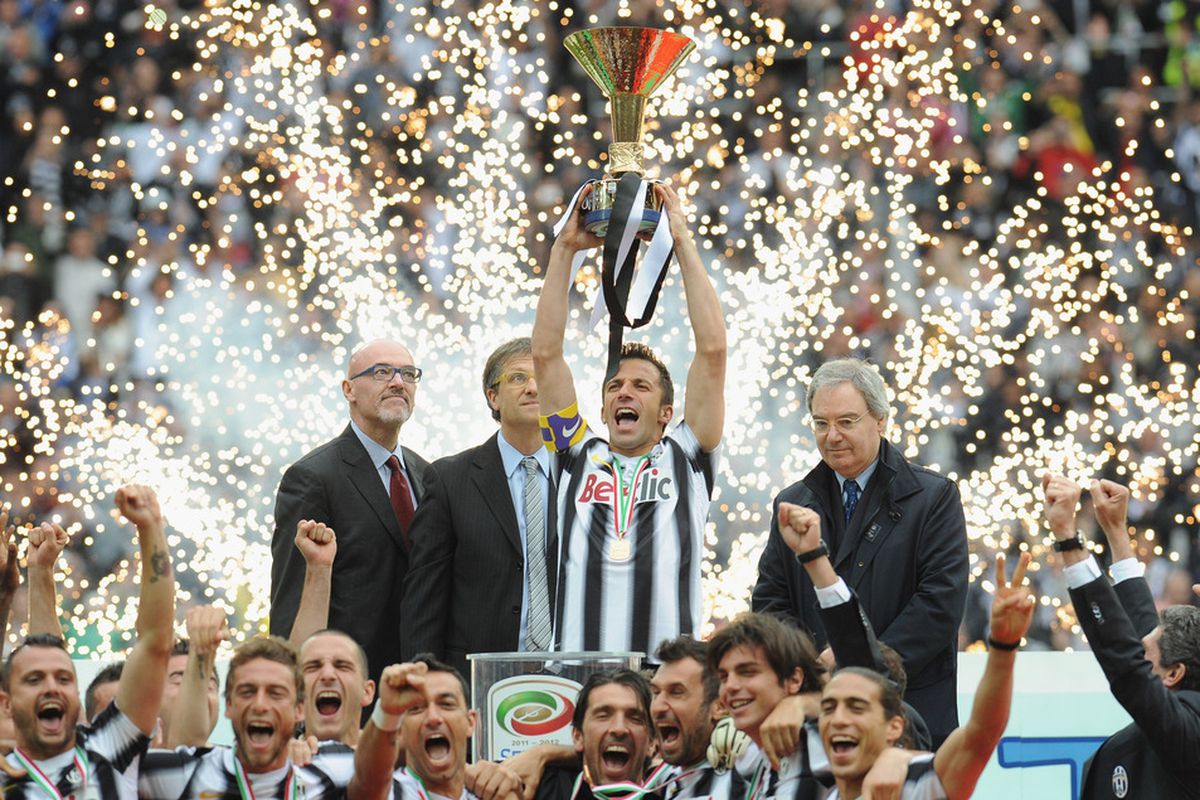
Related Articles
Related Articles
Football rivalries, world-class sport, surreal carnivals, and a tradition you won’t find anywhere else. Five events to catch in February.
In the latest edition of My Town, My Team, Napoli fan Alex told us why everybody should visit Naples at least once.
Sampdoria against Palermo at the Stadio Luigi Ferraris is just one of the standout matches to be shown live on Destination Calcio TV.



